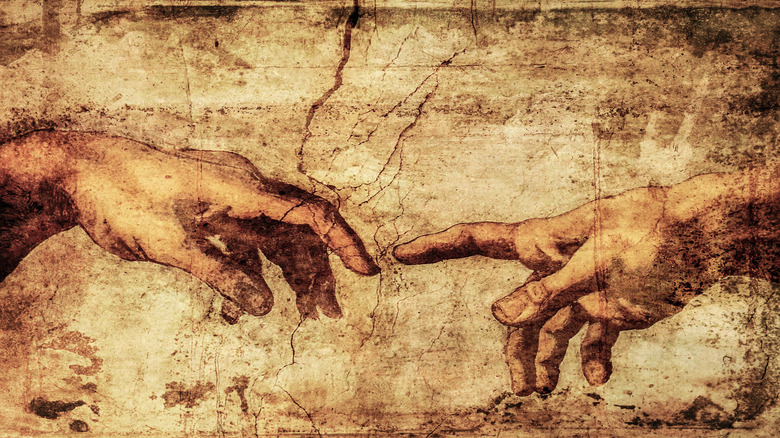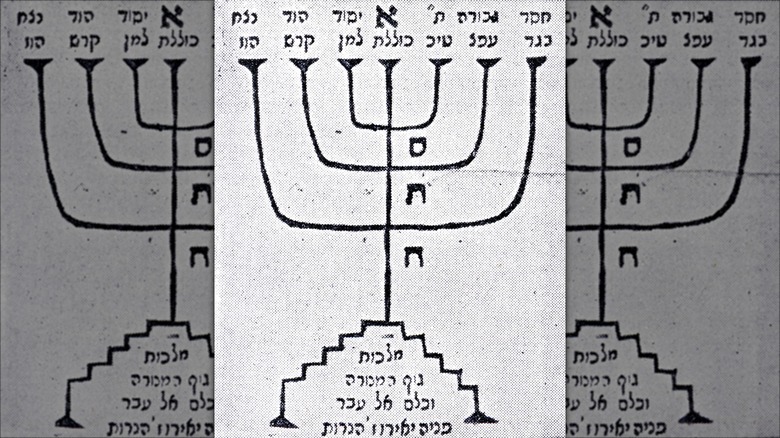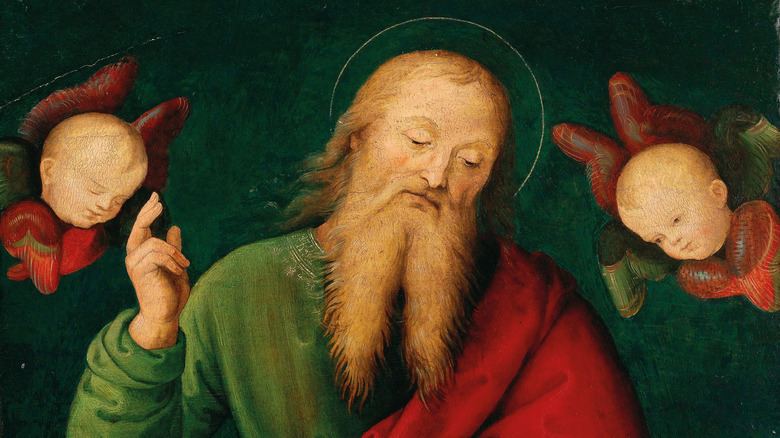The Biggest Unsolved Mystery About God In The Bible
The idea of the existence of a God or gods is present in countless societies throughout history, from the dawn of civilization to the present day. In monotheistic religions, such as Christianity, and Judaism, both of which base their belief in God on the teachings of the Hebrew Bible, there is a single all-powerful God who created the universe and the world as we know it. The opening book of the Bible, Genesis, begins with God creating the world in seven days, beginning the first day with the phrase "in the beginning God created the heavens and the earth," and ending with the seventh day, on which God rested.
The Genesis creation story is widely known, though belief in it as a literal reality varies among both Jewish and Christian believers. But two questions remain: if God existed before creation, what was He doing? Though the Hebrew Bible gives no direct explanation of this, religious scholars have developed some interesting theories about pre-creation God.
Kabbalah imagines God before creation
In Judaism, the most extensive explanation of pre-creation God comes in Kabbalah or Kabbala, a mystical belief system first developed in the 12th century. An oral tradition that adherents say has its roots in unwritten revelations passed down to Moses and Adam, Kabbalah is perhaps best known as the origin of the theory of the Tree of Life. However, it also lays out several doctrines through which the technicalities of creation are laid out.
The Bible states that in the beginning God's creation emerged out of nothingness. In Kaballah, "something" is known as "yesh," was created out of "Ein," or nothingness, by God creating room for that which is not God. To do so, God performed "tzimtzum," the condensing of Himself an infinitely dense and powerful point which then exploded out to create space for the universe to be created, in a manner that parallels the modern concept of the Big Bang.
In Kabbalah, then, space and time do not exist in the same manner that we consider them in our everyday lives. Instead, God existed as an infinite force, the "Ein Sof," meaning "without end." The aspects of God outside the human world are fundamentally unknowable, Kabbalah suggests, to the point that adherents may differ from the teachings of the Bible in referring to the creator as "it" rather than "He."
The Christian view of God before creation
However, Christian believers tend to consider God as a presence or infinite consciousness, with some of those trying to answer the question of God's existence before creation pointing to passages in the Bible that might provide clues to pre-creation not made explicit in Genesis. Though the existence of God before creation is often deemed a mystery among the Abrahamic religions, certain theologists of the Christian faith believe that there is a line of scripture found in the Christian Bible, or New Testament, which offers some profound insights into the deity in the eternity prior to creation.
Many Christians understand God in terms of the Holy Trinity, that He is made up of three parts: the Father (God) the Son, (Jesus Christ), and the Holy Spirit. The three parts are distinct, in that they are different aspects of the same entity. In John 17:24, Jesus speaks to the Father about Christian believers, telling him: Father, I desire that they also, whom you have given me, may be with me where I am, to see my glory that you have given me because you loved me before the foundation of the world."
The answer for many Christian theologists, then, is that God the Father was engaged in loving God the Son and that their unity prior to creation was perfect. However, their separation and Jesus' return to the Father in death was necessary to bring human Christians to God in the same spirit of love.


